What immediately comes to mind when you look at these two photos?
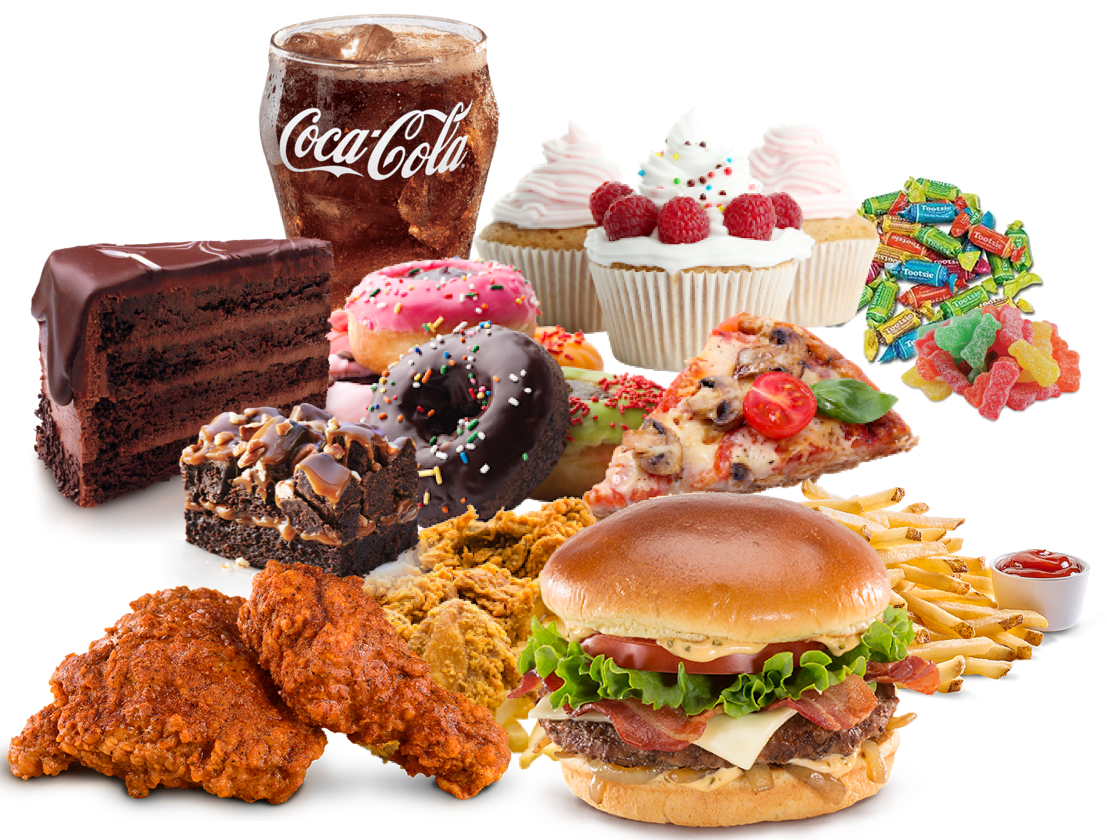
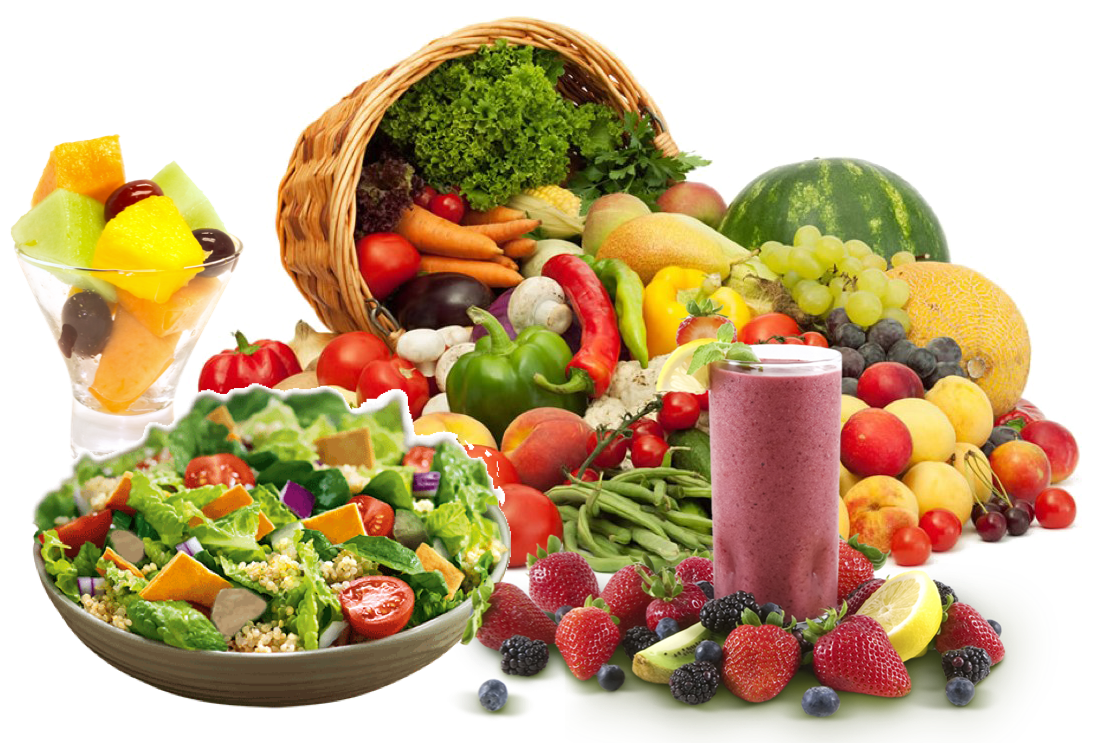
The average person will tell you that a list of health considerations came to mind automatically. Calorie counts; sugar intake; how it will make them look, in terms of their body, their skin, and how others view them; how it will make them feel; the diet they’re on and how it fits in…

Now look at the following photo instead.
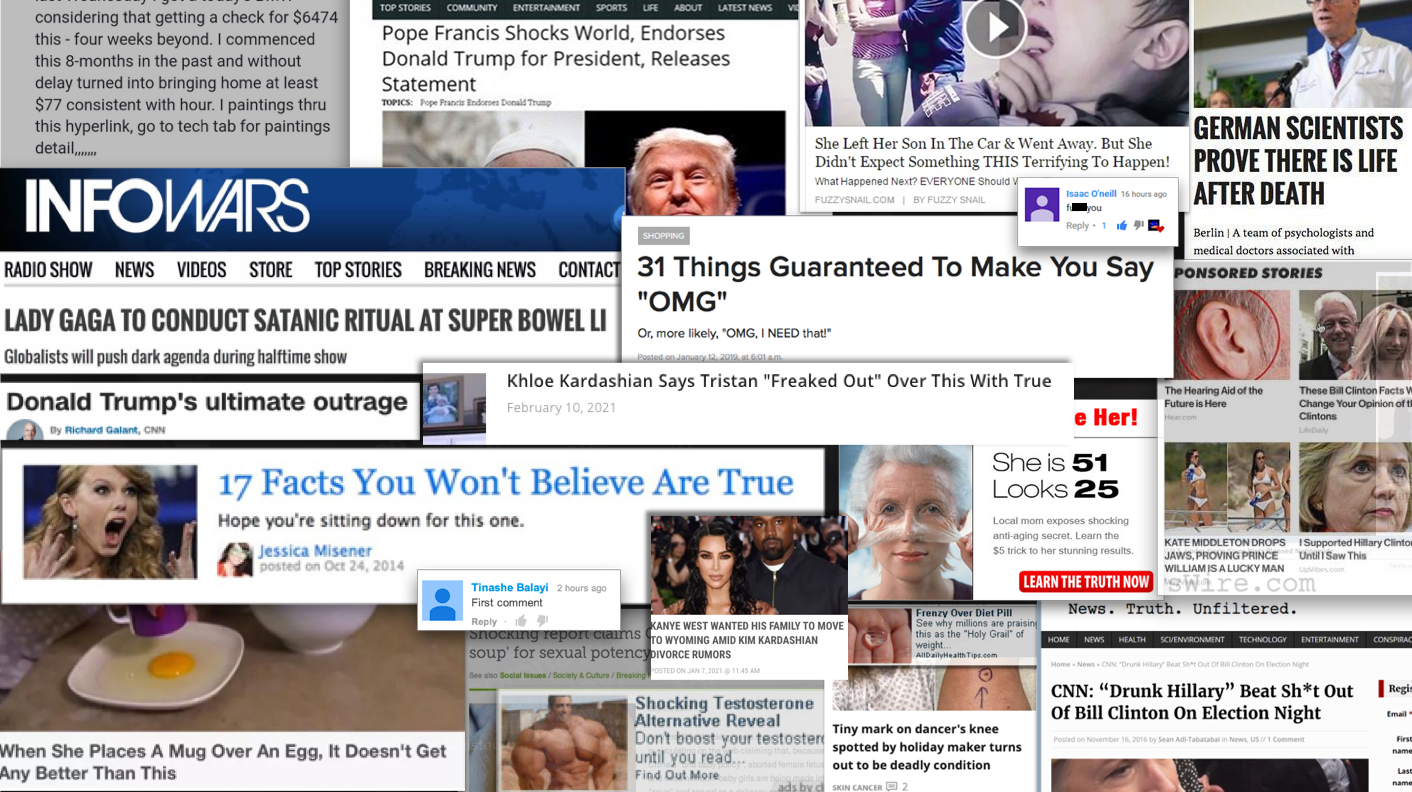
What comes to mind? Notice the difference?
Today we have no comparable system or way of thinking about our information diets. There is no deeply ingrained, systemically taught framework to guide us. There is zero feedback, or even common language, to make us think twice.
It is entirely up to our vague, self-defined conscience and (usually inadequate) skepticism and self-control.
Yet you’re looking at the exact same thing, only for your mind.
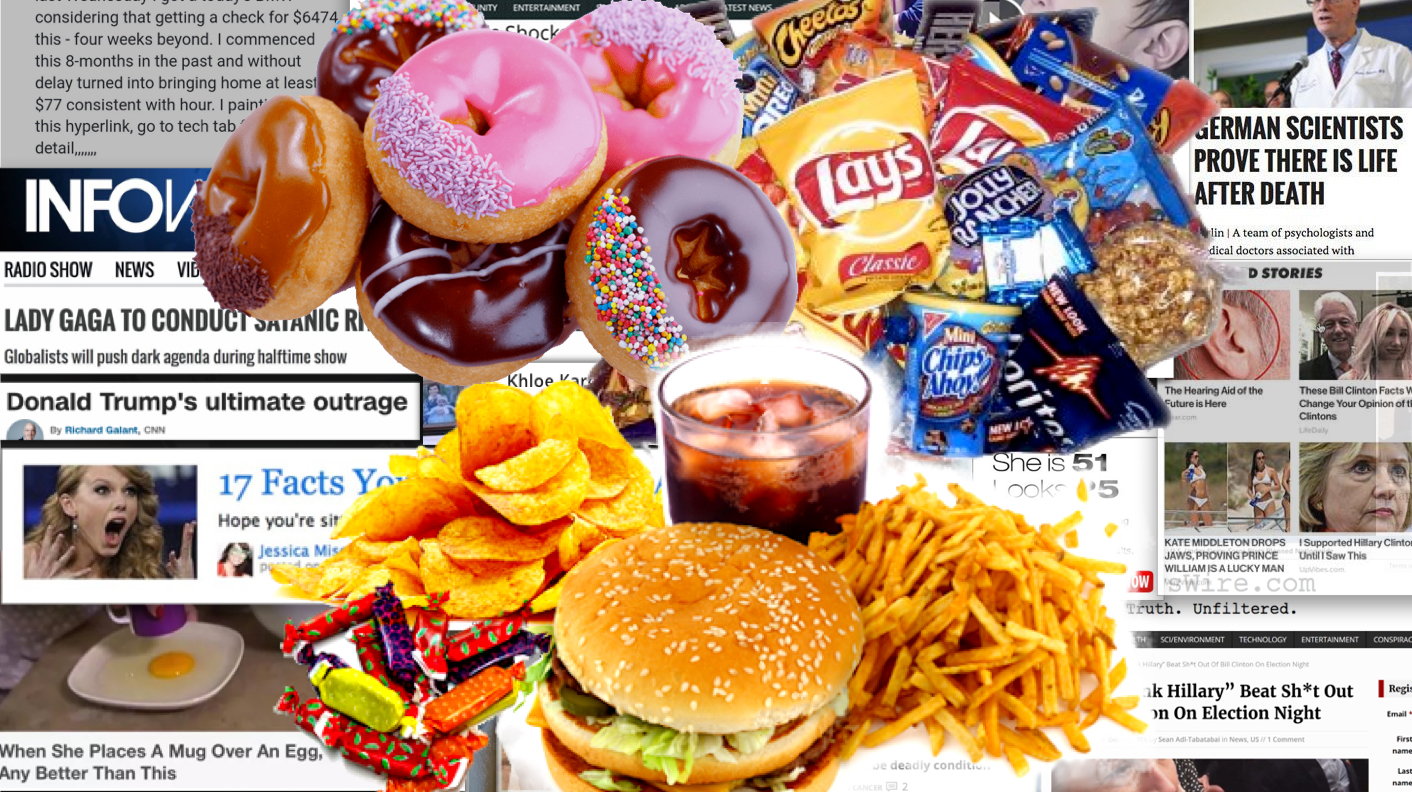
Today the internet is like a buffet, one that the average person is spending 7 hours at every day, and it’s designed to make us gorge ourselves without ever thinking about it.
Last year, Americans spent 13 hours per day with media .
Can you imagine if this was true in the physical world? If food and drink companies had zero limits on what they could feed you, how shamelessly they could provoke you into consuming, and we were spending all day inhaling food and drink — and nutrition wasn’t even a thing?
You are what you eat, and you are what you consume mentally, too.
Your mind does get fat, in its own way. Your thinking does get noticeably greasy. Just the same way your body is forced to process what you put into it, so too does your mind. You’ll notice it in how and what you think of, how you feel, and how that manifests in your behaviour and what you talk about.
The proof is all around us: addiction; depression and anxiety; polarization and violence; threats to democracy; 1 in 5 people suffering from information overload. And underpinning it all, a fundamental pollution of truth. Our relationship to information is literally pathological.
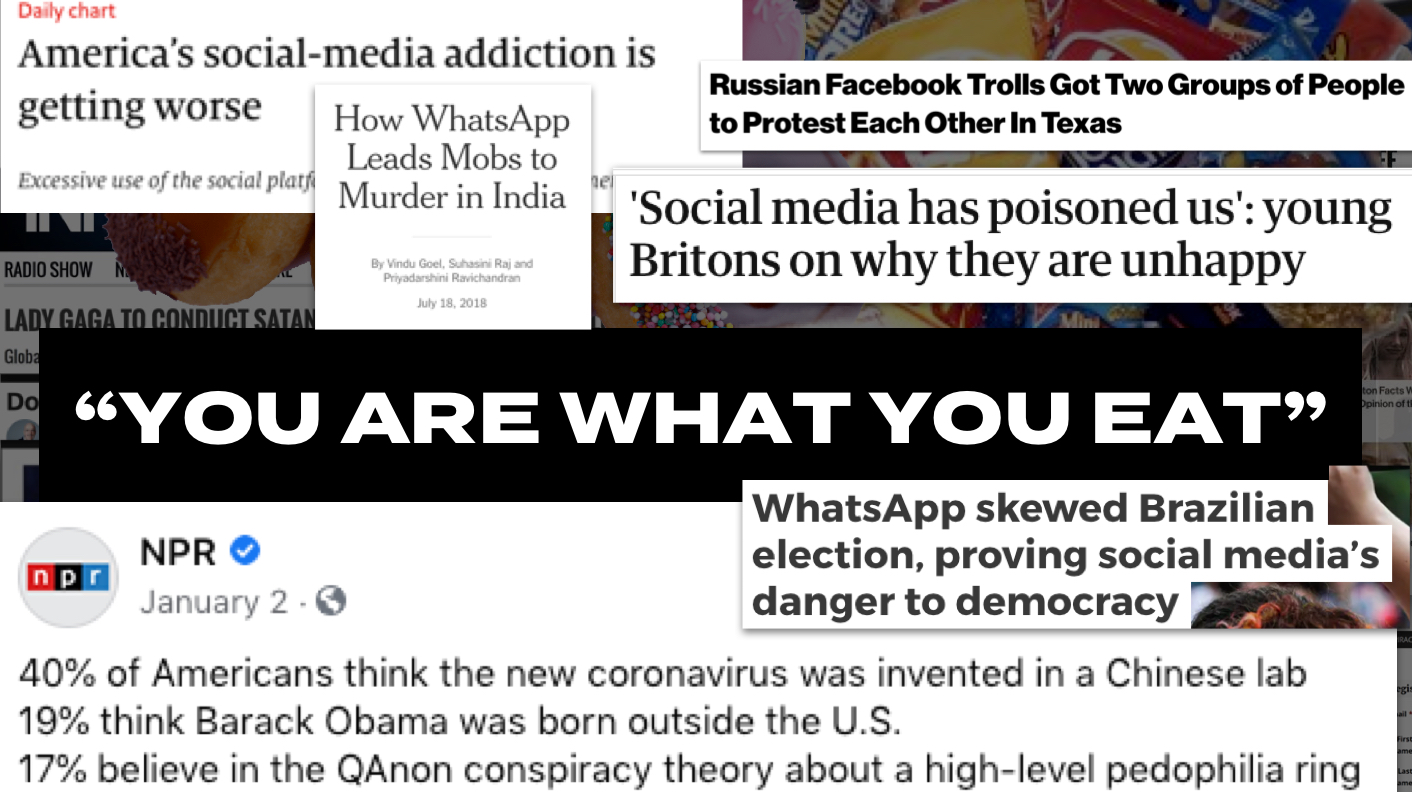
Simply put, we need to become more mindful about our information diets, before this system kills us. We’ve spent decades worrying about the obesity epidemic. It’s time to urgently give the same consideration to the infobesity epidemic, too. Because the parallels are unmistakable.
With the obesity epidemic, we, as a society, started by obsessing about our diets, specifically educating people on what was in their food, and the impacts of it. It wasn’t long ago that there wasn’t a nutrition label in a single fast food restaurant, and parents were happily feeding their kids processed sludge. It wasn’t just how much we were eating, but what we were eating. We also took action to regulate how easy it was for food companies to make matters worse.
Until we did all of these things, we had a skyrocketing amount of people experiencing serious negative physical health effects. You can draw a direct parallel from every single one of those points to our current state of information obesity.
It’s not enough to plant vague red flags over “social media”, or “mental health”. Those are uselessly broad indicators. Social media isn’t the problem, it’s the information and habits that come with it; mental health is an outcome, rather than what leads to a deterioration of it.
If we want to truly tackle the problem of the infobesity epidemic we need to take a leaf out of health experts and advocates the world over: we simply need to raise awareness in a tangible, relatable way. The lack of it is the single biggest reason we are in an as-of-yet largely overlooked and never called out infobesity epidemic.
Information can be precious, or it can be poison. It’s not how much we consume, it’s what we consume and how mindful we are about it.
Media literacy efforts have been a fantastic, encouraging step in the right direction. Now it’s time to take matters a step further and paint a literal, memorable connection between our information diets and our health — individually, in our relationships, in our businesses, our communities, and our society.
In exactly the same way obesity has been targeted for many years, and with clear results.

This is part of our ongoing series about Information Health and Information Wellness. Subscribe to keep up with our research, thinking, and solutions.
 Back to Blog
Back to Blog



